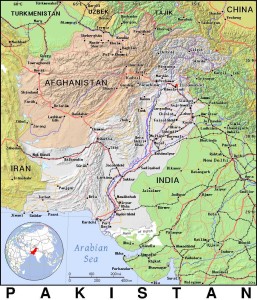 ISLAMABAD — Over 20 members of a Pakistani village council have been arrested after ordering the “revenge rape” of a 16-year-old girl whose brother allegedly sexually assaulted another girl.
ISLAMABAD — Over 20 members of a Pakistani village council have been arrested after ordering the “revenge rape” of a 16-year-old girl whose brother allegedly sexually assaulted another girl.
According to reports, a 12-year-old girl was cutting fodder for the cattle in the village of Muzaffarabad near Multan last month when she was raped by a 16-year-old boy.
The girl’s mother went to village officials—called the panchayat—about the matter, and it was decided that retribution should be the form of justice served.
According to the Pakistani publication Dawn, the mother of the teen who raped the girl offered one of her married daughters in exchange for her son’s crime—on the condition that no legal action would be taken against him. However, the 27 officials ordered that the victim’s brother rape the teenage assailant’s unmarried sister.
After the revenge rape was carried out, both families went to the police, accusing each other of sexual assault. Some of the council members were reportedly present as the punishment was carried out.
As both families were questioned about the matter, it was discovered that the village council had ordered the reciprocal rape. It was also found that members of the council were also extended family members of both families. They were subsequently taken into custody.
“All the village council elders who ordered the revenge rape have been arrested,” Multan City Police Officer Ahsan Younus told Reuters.
Sections 310A and 109 of the Pakistan Penal Code (giving a woman in marriage to settle a criminal liability and abetting a crime) have been filed against the more than 20 people who ordered the sexual assault.
Both girls who were raped, and their mothers, were sent to a women’s protection center.
Word of the situation has drawn outrage, including from Punjab Chief Minister Shahbaz Sharif, who has formed an investigative committee tasked with submitting a report on the matter.
“Pakistan’s judiciary has time and again declared these local councils to be unconstitutional and [have] no legal standing,” lawyer Asma Jahangir told The Guardian. “Such decisions and parallel justice should end now.”
Become a Christian News Network Supporter...


